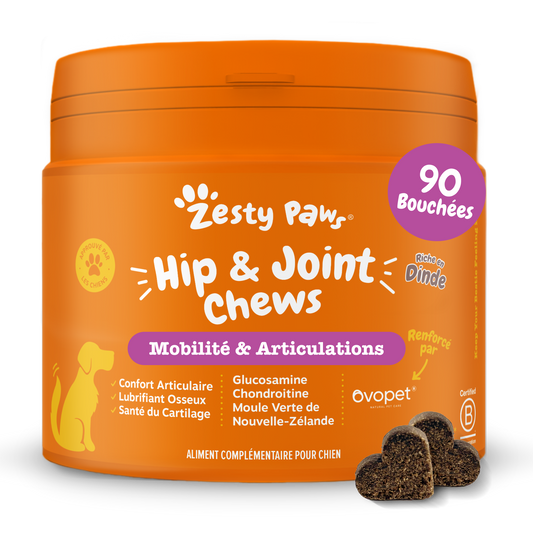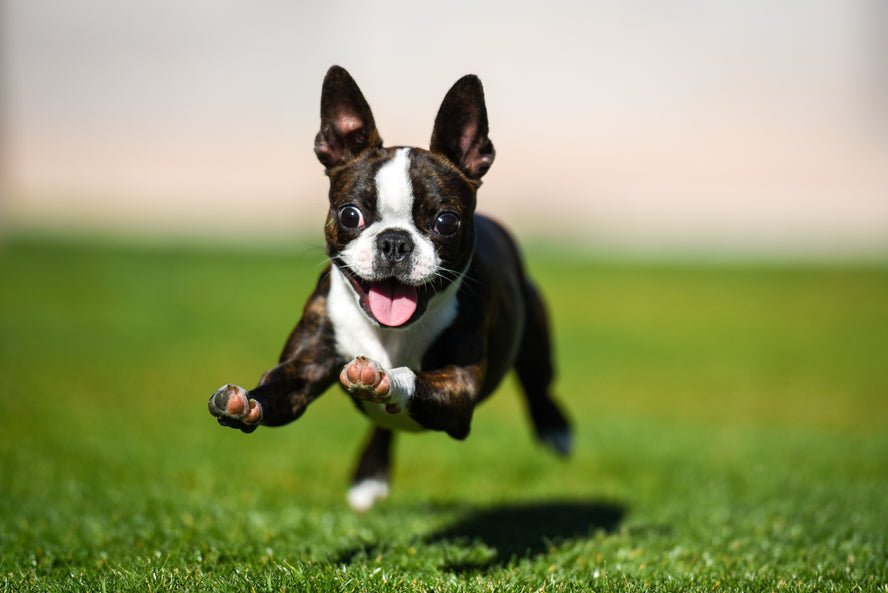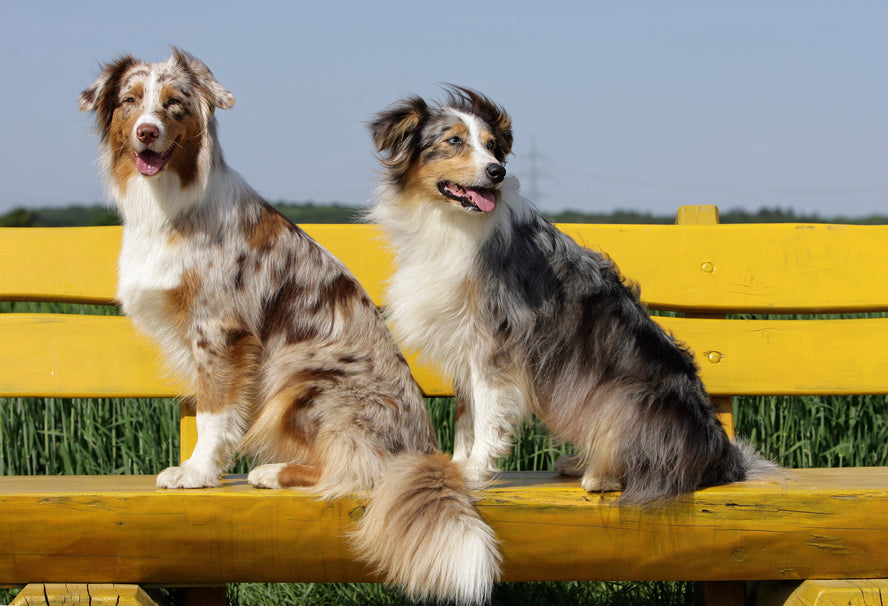As your dog gets older, you may notice signs of joint stiffness and reduced mobility. Certain signs may alert you: increased sleep duration, slower walks, difficulty getting up, loss of interest in playing, etc. These changes in behaviour may reflect joint discomfort. If so, your dog may need an orthopaedic cushion, gentle exercise, or supplements. With lots of love, care and support, you can help relieve your senior dog's stiffness and give him many more happy years at your side.
Here are the right questions to ask yourself:
Is my dog sleeping more?
After a long walk or vigorous play session, dogs like to snooze - but if your dog seems much sleepier than normal, joint stiffness may be the cause. Older dogs tend to sleep more often (which will come as no surprise to those who always snooze in front of their Netflix series!). As with humans, dogs naturally sleep more as they age. While it's normal for senior dogs to rest frequently, excessive sleeping could indicate that your pet is stiff and or in pain.
- A specialised orthopaedic bed or cushion can provide joint protection and support for a more comfortable rest.
- Supplements may also help soothe your dog's joints and promote mobility. The less stiff your pet is, the happier he will be!
Is my dog walking a little slower these days?
Your dog may slow down during daily walks without outward signs of stiffness. You may notice that walking takes longer than usual or that your dog needs to stop more often to catch up. These subtle changes may indicate their joint becoming stiff.
- Instead of a long walk, offer him several short outings on flat ground to help him move around more easily.
- If you are used to cycling or running with your dog, consider changing your routine. Avoid pushing your dog to take part in activities beyond their comfort level or physical capabilities.
- To support your dog's joint health and mobility, consider a joint supplement specially formulated with ingredients like New Zealand green-lipped mussel or glucosamine that have been clinically tested to improve joint comfort. Our delicious Hip & Joint supplements are a great option to explore.
Is my dog finding it difficult to get up?
Does your dog like to be by your side all the time, sometimes even if it means becoming a real glue pot? So far, so good ! However, as they age, stiff joints make it increasingly difficult to get up and move. If your dog requires several attempts to stand and if joining you on the couch requires a special effort, then a joint supplement could help ease the discomfort.
Is my dog less playful?
A dog's active lifestyle puts pressure on their joints over time. If their joints become stiff, everything becomes more painful, even chasing a ball, grabbing a stick, or jumping to get treats. Dogs who are very active in their youth will probably slow down as they get older. Play time becomes more difficult: your once energetic companion may withdraw or avoid your gaze when you’re trying to play.
- Rather than playing very actively, offer him gentle activities that will stimulate him mentally.
- Spend time with your dog and interact with him through touch, voice and cuddles rather than making him run or jump all the time.




